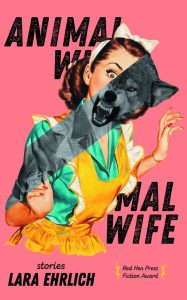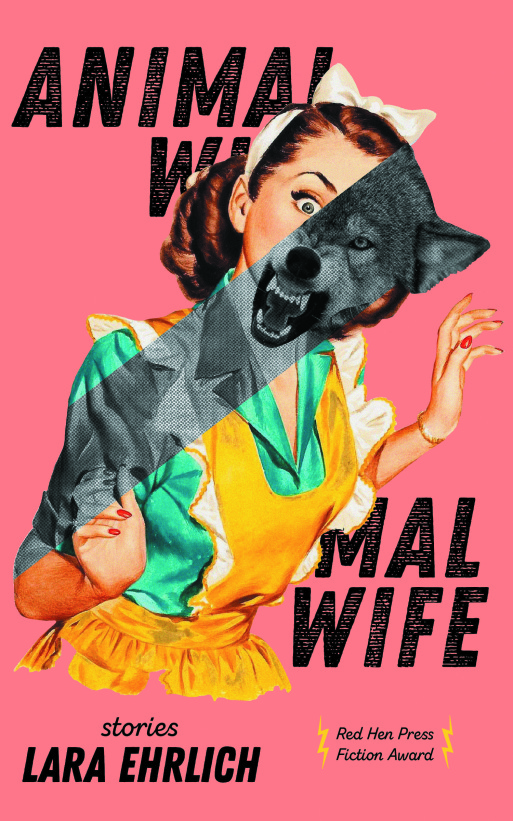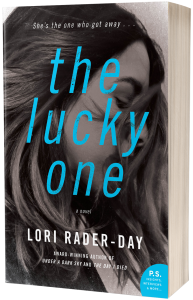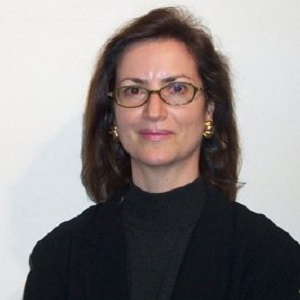Midwest Writers Workshop presents another installment of our “Conversation with an Author” series. MWW board member Lylanne Musselman talked with MWW alum Lara Ehrlich about her newly released book, her writing life and her MWW experience.
Lara Ehrlich’s work been published in literary magazines, including F(r)iction, Hunger Mountain, and StoryQuarterly, and has been recognized with many awards and fellowships; most recently, Animal Wife received Red Hen Press’s Fiction Award, judged by New York Times-bestselling author, Ann Hood, who called the collection “sensual and intelligent, with gorgeous prose.” Animal Wife, which launched in Sept 2020, has been praised as “remarkable” by Lit Hub, who said “the collection is a standout in a season full of amazing new releases.” Lara lives in Connecticut with her husband and daughter.
Lara Ehrlich is also a former Midwest Writers Workshop Retreat Fellow. Here’s Lylanne’s interview with Lara:
MWW: Tell me a little about your new book, Animal Wife – how did it come about? Are the stories in it what you normally write?
 LE: Animal Wife is a collection of stories about women’s transformations, from girls into wives, mothers, and monsters. Winner of the Red Hen Press Fiction Award, judged by Ann Hood, Animal Wife was on shelves September 8, 2020. It’s available now at RedHen.org, Bookshop.org, and Amazon.com.
LE: Animal Wife is a collection of stories about women’s transformations, from girls into wives, mothers, and monsters. Winner of the Red Hen Press Fiction Award, judged by Ann Hood, Animal Wife was on shelves September 8, 2020. It’s available now at RedHen.org, Bookshop.org, and Amazon.com.
Animal Wife originated with the titular story in the collection, about a girl who undertakes a quest for the mother who abandoned her. I started this story as a novel and after writing hundreds of pages, realized it was actually meant to be a short story! This is where I rediscovered my love of writing short stories, how time and emotion can be compressed into a tight space that exerts pressure on every sentence. I love the intensity of short stories, and how they can sustain an off-kilter voice or a wild conceit that might sag in a longer piece.
The next few stories are also about girls and young women, tapping into the urgency and uneasiness of puberty. As I began writing toward a collection, the stories began to change, to move away from girls and toward mothers. During this time, I was questioning whether I wanted to have a family. I was terrified of the self-abdication that I believed motherhood necessitated. I was going to create Important Work, and I couldn’t afford the distraction. I believed that the right way to be a mother was to devote all of myself to my child, while the right way to be a writer was to toil in isolation, unfettered by the needs of others.
I wrote the majority of the stories in Animal Wife while agonizing over this decision, then while pregnant, so those stories are often worst-case scenarios, nightmares, terrors about motherhood. I wrote the last few stories during those first few months of motherhood that I can barely remember because they were so intensely exhausting. Writing has become not only a calling and a career, but my way of keeping hold of myself and avoiding the self-abdication I’d so feared.
Throughout Animal Wife, readers will be able to see my preoccupations and priorities shifting—and with them, my voice. Now, I could no longer write the stories that open this collection.
MWW: What writers do you feel have influenced you?
LE: In elementary school, my obsession with Edgar Allen Poe inspired me to write stories about crazy murderers. Ray Bradbury sparked a science fiction period. In college, I read James Joyce, Nabokov, and Faulkner, and became longwinded. In graduate school, Somerset Maugham, Evelyn Waugh, and Oscar Wilde injected some whimsy into my longwinded prose.
One thing all of these writers have in common: they’re men. And I was writing about men. Writing about women seemed dangerous somehow, too autobiographical. Reading other women was revelatory. When I began writing about women, writing from that place of danger, my stories changed. They became spare and, although they no longer feature murderous crazy people, more daring.
The writers who inspire me now are risk-taking women who cross boundaries, tackle uncomfortable themes, plunge into dark places. Women like Angela Carter, Kelly Link, Katherine Dunn, Elena Ferrante, Maggie Nelson, Karen Russell, Kristen Arnett, Aimee Bender…I could go on!
MWW: Do you have any writing rituals?
LE: I have a 4-year-old daughter and work full time as the director of marketing for the International Festival of Arts & Ideas in New Haven, CT. Before I had a child, I had writing rituals: I’d write every day before work and on my lunch break—but those sacred times have been filled with other responsibilities, and I struggle to find time for sustained work. I force writing into the cracks of my schedule wherever I can.
This is more of a practical habit than a ritual, but I have a long commute and often use the time to work on my novel by dictating to myself using my phone’s recording app (In fact, I’m dictating this right now!). I upload the recording to the (free) Otter transcription app, which does a passable job of transcribing my monologue. While my toddler is eating dinner, I clean up the transcription and end up with 3,000 words on a good day. Those 3,000 words need a ton of work, but starting from there instead of with a blank page has been really helpful for my productivity. It’s the only way I was able to draft my novel-in-progress.
MWW: You are an MWW Alum. How did you originally find the workshop? How often did you attend?
LE: The 2009 Workshop was my first conference! I originally found the workshop through a scholarship promoted in Poets & Writers magazine. A year later, I attended the Midwest Writers Workshop Fellows Retreat, which was my first retreat.
MWW: How did attending MWW affect your career?
LE: I’ve wanted to write a book since fourth grade, when I composed a fantasy epic (in an etched leather journal) that was really just a description of the movie Willow. I went on to fill dozens of notebooks with stories and bits of novels and scenes. Although publishing a book was my ultimate goal, completing and selling a manuscript seemed utterly mysterious and out of reach. I attended MWW with about 20 pages of a novel and zero knowledge of the publishing industry, open to learning everything I could.
I was nowhere near ready to query agents yet, but I took advantage of a pitch session with an agent who encouraged me to stick with my novel, gave me some pointers on the query letter I’d drafted, and invited me to send her the book when I was ready. That one actionable goal—send this person my book—helped me begin to demystify the publishing process and break it down into other actionable steps that seemed attainable when tackled one at a time.
During that same conference, I clicked with two other Chicago writers who were working on their first novels, and we formed a critique group. We continued to meet for years, supporting one another through drafting and revising our work, querying agents, and eventual publication.
MWW is equally devoted to helping writers develop their craft, and I found many of those sessions to be valuable—but at that moment in my fledgling career, MWW helped me to understand the business side of writing. That is what I needed to be able to take my writing seriously not just as a craft, but as a career.
MWW: Thinking about the sessions you attended, what is one session that really stands out to you (more if you want to mention them)?
LE: Among the many excellent programs that I attended on writing vivid settings, querying agents, and developing intriguing characters, the session that stands out to me most was about tax preparation. This, from someone who struggled so mightily to learn the difference between addition and subtraction that when I finally got it down, my first-grade teacher sent home a congratulatory note.
Until MWW, I hadn’t realized that I could deduct the writing expenses I was racking up—from the MWW conference fee, to a portion of my rent, to my office supplies. As much as I still detest math, tracking my writing expenses made the business side of my career more tangible; while I couldn’t quantify my effort, I could quantify my monetary investment in my writing, which elevated what I was doing from amorphous labor to real work.
MWW: If you were ever to lead a session at MWW (and we hope you will!), what might be something you’d like to instruct writers on?
LE: At this moment in my life and career, I’m particularly interested in working with other parent-writers (specifically, but not limited to, mothers) to prioritize their writing. I’m forever asking other parent-writers how they manage to create art while cleaning up after little people, imagining that there must be a secret I just haven’t discovered yet. How does everyone else seem to have their lives together, to be producing exceptional work, to have well-adjusted children? Every parent-writer I’ve asked has laughed and said, “My life is a shit show.” (Often literally. So. Much. Poop.) I’d like to lead a session for other writers who struggle with this balancing act to see if we can come up with strategies together.
MWW: Can you share what you’re working on now?
LE: The stories in Animal Wife are about girls and women seeking liberation from family responsibilities and societal expectations; my novel-in-progress is a more in-depth exploration of these themes, framed by a loose retelling of “The Little Mermaid.” A restless siren-turned-human who takes over a failing mermaid burlesque. She establishes a kingdom in the likeness of her lost world and lives as a siren, performing in a tank at the edge of the sea. At its heart, the book is about the dark underbelly of fantasy, the need for escape and transformation, which in the end is disappointing—and often destructive.
A fun note: As part of my research, I attended the Sirens of the Deep Mermaid Camp at Weeki Wachee State Park in Weeki Wachee, Florida, where women have performed as mermaids since 1947. During the two-day camp, my fellow campers and I were trained by mermaids—called Legendary Sirens—who had performed at Weeki Wachee in its golden age. My essay about Siren Camp is forthcoming in Lit Hub.
MWW: What is some advice you would give to novice attendees, or even to those who are wanting to attend…but feel they’re not ready?
LE: As I mentioned before, I was a total novice when I attended my first MWW conference. I was so overwhelmed when I arrived that I bought a box of cereal and a bottle of wine at Walmart and hid in my hotel room watching a truly terrible Jennifer Love Hewitt movie on cable. When I finally made it to the conference center, I was relieved to find that the staff and instructors were supportive and welcoming—and the other writers were as overwhelmed as I was! From there, MWW was a transformative experience, so I would advise novice writers just to go and be open to feeling overwhelmed. You’ll never really feel ready, so you might as well just go for it.
Learn more about Lara at LaraEhrlich.com and join her newsletter for writing updates here!



